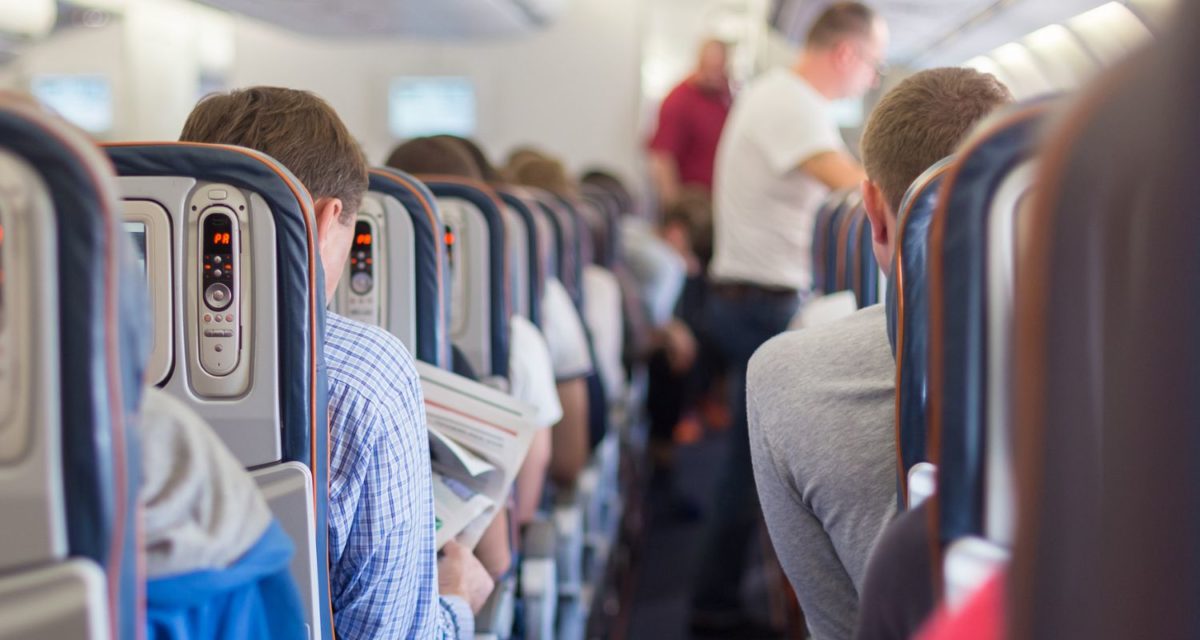There are so many exciting things about airplane travel! It’s a chance to explore a new place, meet new people and have new experiences. While many look forward to the adventure, it’s often a means to an end. Many struggles to relax on the long journey, while others have come to find comfort in the experience. Regardless of what kind of traveler you are, almost everyone has to deal with the changes in pressure which occur as the airplane shifts altitudes and causes issues with the ears. For most people pressure in the ear is minor discomfort, but this is not the case for all. In rare instances, pressure in the ear can lead to severe pain and even hearing loss.
Under Pressure
It’s estimated that within the first ten minutes of flight, most commercial airplanes reach an altitude between 31,000 and 38,000 feet, which translates to about 5.9 to 7.2 miles high in the sky. While usually, the air pressure of the inner ear and outside air pressure is similar this extreme and quick change can cause this change to happen all too quickly, causing a significant differentiation. It’s common to notice tension in your ear when descending a hill via car or even hiking to a mountain top but this happens relatively gradually – nothing compared to the extreme change which occurs when we take off on an airplane.
When you take off the tympanic membrane, also known as our eardrum, swells outward. However, landing is just as much an issue. As the air pressure inside the inner ear quickly becomes less than the air pressure outside, the tympanic membrane will be sucked inward, similar to a vacuum. Both take-off and landing can leave you with pain and discomfort and can even impede hearing as the eardrum is not able to vibrate, causing sounds to seem muffled.
Ear Barotrauma
An airplane take-off essentially doesn’t give the pressure inside the inner ear and the air pressure outside time to equalize, causing a sensation known as ear barotrauma. Ear barotrauma is a condition that causes a person to feel pain or discomfort in the middle of their ear due to pressure changes in the surrounding air or water. This is a common concern for scuba divers who are often at risk of changing pressure, especially when ascending or descending from the ocean depths, however, airplane travelers can face a similar risk.
The condition is often painful and then dissipates but, in some cases, barotrauma can become chronic, causing prolonged symptoms, which may lead to further complications. When air pressure changes, such is the case in air travel, symptoms such as pain and swelling go away as soon as the air pressure outside has normalized. However, in severe cases, barotrauma can cause permanent injury to the eardrum, fluid leakage in the ear, and even moderate to severe hearing loss
Preventing Ear Pain While Flying
Almost everyone who flies experiences some degree of pressure in the ears. The Eustachian tube connects the middle ears to the back of your throat and its job is to equalize the intratympanic air pressure with the pressure in the external auditory canal. There are ways to aid in the equalization of pressure by introducing as much air as possible to the Eustachian tube.
- Swallowing – Every time you swallow or yawn the eustachian tube opens for a fraction of a second. This allows air into the middle ear to replace the air that has been absorbed by the middle ear and can aid in the equalization of pressure due to altitude changes. When flying, the idea is to stimulate the Eustachian tubes to work overtime, opening up to accommodate the changes in air pressure.
- Chewing gum or hard candy –chewing gum or sucking on hard candy will instigate regular swallowing to aid in equalizing air pressure.
- Valsalva maneuver – fill your mouth up with air, shut your mouth and hold your nostrils shut. Let the air out slowly to help open the Eustachian tubes.
Monitor Your Hearing Health
If you are planning air travel and you have congestion it may be best to postpone your trip as it can cause a blockage leading to ruptured eardrums or severe infection and hearing loss. If you are concerned about your hearing, schedule a hearing exam today and stay on top of your total ear health.

